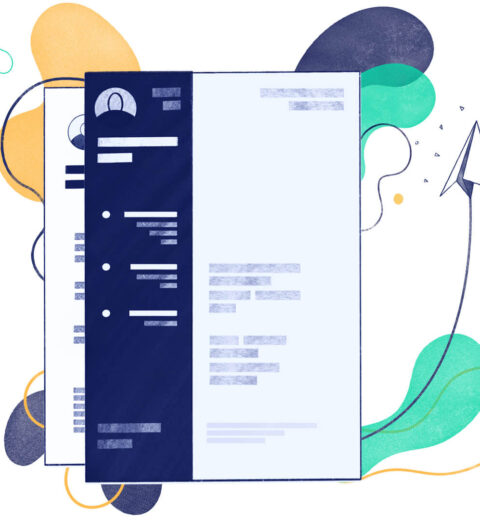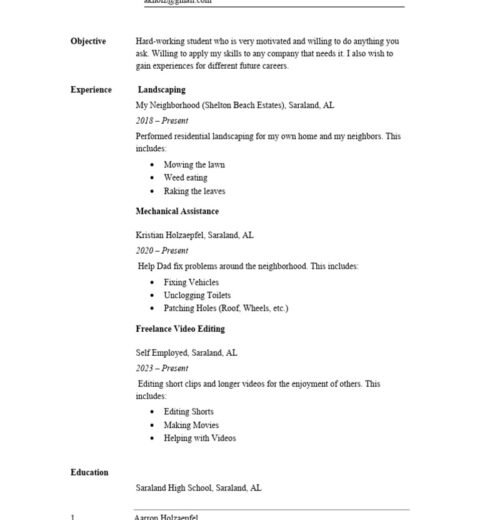Including references on a resume is a nuanced decision that can significantly impact your job application. Understanding when and how to include references is vital to presenting an effective résumé. This article delves into various aspects of references on resumes, emphasizing the types of content you can anticipate when crafting this essential component.
Understanding the Role of References
References serve as credible endorsements of your professional capabilities, providing potential employers with insight into your work ethic and skills. They are individuals who can vouch for your qualifications, character, and past work performance. It’s crucial to choose references whose evaluations will complement the narrative you wish to convey in your resume.
When to Include References
The conventional wisdom surrounding references suggests that they should not be included directly on your resume unless explicitly requested by the employer. Typically, a statement such as “References available upon request” can suffice. This approach not only conserves valuable resume space but also allows you to prepare and inform your references ahead of time.
There are instances, however, where listing references directly on your resume may prove advantageous. If you are a recent graduate with limited work experience, including references may bolster your candidacy. Similarly, professions that demand high levels of trust and integrity—such as in healthcare or education—may benefit from immediate reference listings.
How to Choose the Right References
Selecting the right references entails strategic thinking. The ideal references are those who have a direct relationship with your professional life and can provide specific anecdotes about your competencies. Consider the following types of potential references:
- Direct Supervisors: Individuals who have assessed your work performance within a professional setting can offer the most impactful testimony.
- Colleagues: Peers who can speak to your teamwork and collaboration abilities add depth to your application.
- Mentors: Those who have guided you in your career development can validate your skills and aspirations.
- Clients: Customer-facing roles might benefit from client testimonials who can endorse your service or product delivery.
Formatting References on Your Resume
Should you decide to include references, clarity and professionalism in the formatting are paramount. Here is a commonly accepted structure:
- Reference Name: Include the full name of your reference.
- Title: State their professional title and how it pertains to your relationship.
- Company: Mention the name of the company you both work for or previously worked together at.
- Contact Information: Provide an email address and phone number, ensuring that you have their explicit permission to share this information.
Here is an example layout:
John Doe Senior Manager ABC Corporation john.doe@email.com (123) 456-7890
Placement of References on Your Resume
The location of your references can also influence the effectiveness of your resume. Generally, it is advisable to place them at the end of your resume, allowing your qualifications and achievements to occupy the limelight. Inserting a dedicated “References” section follows your skills and experience conclusively and can serve to reinforce what has been presented thus far.
For those including a statement such as “References available upon request,” a brief mention at the end works equally as well, freeing up space for more critical resume content while still leaving an open invitation for employers to inquire further.
Preparing Your References
What Employers Look for in References
Employers seek specific qualities in references, primarily relevance, reliability, and specificity. They prefer references who can speak directly to the experiences listed on your resume, validating your skills with concrete examples. Furthermore, a quick response from a reference can reflect positively on your candidacy. Therefore, selecting individuals who are not only willing but also prompt in their communication is beneficial.
Handling Reference Requests
If an employer requests references, responding promptly and professionally is essential. Consider providing a mix of references that highlight different aspects of your career. For instance, include a combination of supervisors who can discuss your work ethic and peers who can speak about your teamwork and interpersonal skills.
Final Thoughts
In conclusion, the inclusion of references on your resume requires careful consideration of when to list them, how to choose appropriate individuals, and the format in which you present them. The strategic use of references can bolster your résumé, making it more compelling to potential employers. Ultimately, the goal is to ensure that every element of your application works harmoniously to portray your qualifications and aspirational journey to its fullest potential.




